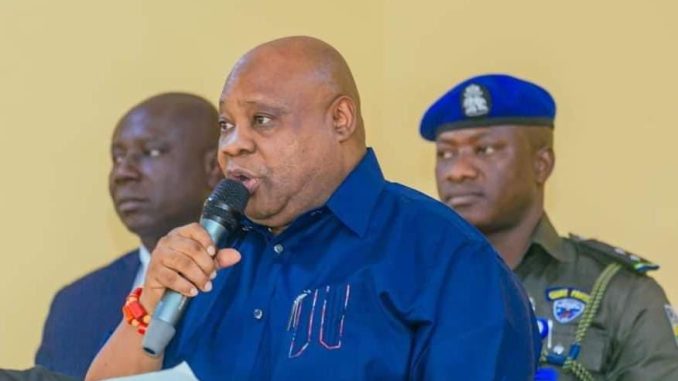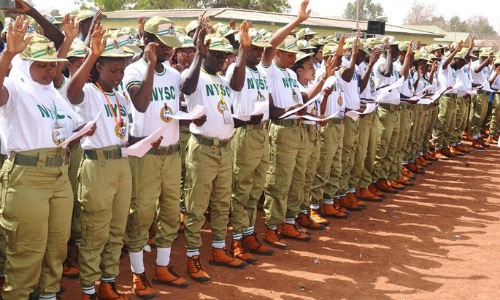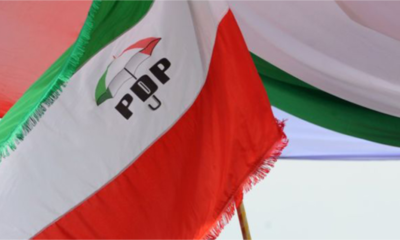Career
Court Decides If Paying Salary In Dollars Is Legal In Nigeria

In a legal case involving Chukwuemeka Oduenyi and SMEC International, the issue of whether a contractual agreement to pay employee salaries and entitlements in foreign currency is valid in Nigeria came under scrutiny.
The National Industrial Court in Abuja, in its 2019 ruling, had to interpret Section 20(5) of the Central Bank of Nigeria Act (CBN Act) in relation to the employment dispute between the two parties.
Chukwuemeka Oduenyi, a Nigerian citizen residing in Nairobi, Kenya, secured a position as the Private Sector Business Development Manager for West Africa at SMEC International Limited, an engineering and development company, in September 2017.
He entered into a one-year employment contract with the company, covering the period from October 9, 2017, to October 8, 2018, and was assigned to Abuja, Nigeria. It was mutually agreed that his salaries and other entitlements would be paid in United States Dollars (USD).
The terms of the agreement included a monthly salary of 6500 USD, a monthly accommodation allowance of 1500 USD, and a probationary period of 6 months.
The employment contract also included provisions stating that Chukwuemeka Oduenyi may be required to perform his duties in locations outside of Nigeria. Furthermore, the terms and conditions outlined in the employment letter were deemed to encompass the entirety of his employment agreement.
Mr. Oduenyi accepted the job offer, leaving his family in Kenya and relocating to Nigeria to commence his duties. He secured a two-bedroom flat at No. 45, Mamman Nasir Street, Asokoro, Abuja, with an annual rent of 19,500 USD.
However, in November 2017, the employer became aware that the clause in the contract stipulating payment in USD while working in Nigeria was deemed illegal.
According to Nigerian law, the official currency is the Naira, and it is considered an offense to reject Naira as a form of payment.
This information was communicated to Chukwuemeka, who expressed his concern regarding the financial support he needed to provide for his family in Kenya, necessitating foreign currency.
In response to Chukwuemeka’s situation, SMEC presented him with two alternative job offers in November. One offer entailed payment in Nigerian Naira, while the other offered payment in Kenyan shillings, reflecting his family’s location.
However, Chukwuemeka declined both offers and insisted on retaining his original position with payment in USD.
Consequently, SMEC issued him a one-month notice of employment termination in December 2017, citing the legal restriction on paying a Nigerian employee in foreign currency as the reason for his dismissal.
Chukwuemeka took legal action, alleging a breach of contract, and sought various forms of redress.
His primary complaint centered around the wrongful termination and contended that the stated reason for his dismissal constituted a violation of his employment agreement with SMEC, his employer.
The defendant, SMEC, argued that the terms of their employment contract explicitly stated that both parties would be subject to Nigerian laws.
In accordance with this provision, they referred to Sections 15, 20(1), and 20(5) of the Central Bank of Nigeria Act 2007.
They contended that paying the claimant’s salaries in USD contravened Nigerian law. Section 15 of the CBN Act designates the Naira as the official currency of Nigeria, while Section 20(5) states the following: “A person who refuses to accept the naira as a means of payment is guilty of an offence and liable on conviction to a fine of N50, 000 or 6 months’ imprisonment: Provided that the Bank shall have powers to prescribe the circumstances and conditions under which other currencies may be used as medium of exchange in Nigeria.”
Breaking News
Renowned Nigerian Singer Onyeka Onwenu Dies After Lagos Performance
Nigerian singer, songwriter, and actress Onyeka Onwenu passed away on Tuesday, shortly after performing at a birthday party in Lagos.
The celebrated music icon was attending a friend’s private birthday celebration when she took to the stage to perform. After returning to her seat, Onwenu suddenly collapsed, prompting immediate concern among the attendees.
Emergency responders arrived swiftly and transported her to Reddington Hospital on Victoria Island. Despite the medical team’s efforts, Onwenu was pronounced dead shortly after her arrival.
Sources close to the family revealed that she fell ill during the event, leading to her collapse.
READ MORE: Adeleke Appeals To #EndBadGovernance2024 Organisers To Keep Osun Violence Free During Agitations
She said, “It is very sad. Onyeka Onwenu just performed at the birthday of Mrs. Stella Okoli of Emzor Pharmaceuticals tonight. After performing, she slumped. She was taken to Reddington Hospital but couldn’t make it.”
The exact cause of her death is yet to be confirmed.
Born on 31 May 1952, Onwenu was a multifaceted artist whose career spanned over four decades. She was not only a renowned singer and songwriter but also an actress, journalist, and politician.
Onwenu’s music blended genres such as highlife, reggae, and pop, often addressed social and political issues. Some of her most popular songs include “One Love,” “Iyogogo,” and “Ekwe.”
Onwenu was also known for her political activism. She was chairperson of the Imo State Council for Arts and Culture and was appointed Executive Director/Chief Executive Officer of the National Centre for Women Development.
Earlier this year, Onwenu revealed she was producing a movie chronicling her experiences in the music industry spanning several decades. She expressed her excitement to share her personal story and how Nigerian music has evolved over time.
Onyeka Onwenu, known for her contributions to the Nigerian music and film industry, leaves behind a legacy that will be remembered for generations.
Career
Adeleke Excites Workers With Wage Awards

Career
Ransom Threats: Fear Grips Kidnapped A’Ibom Corps Members’ Families

Families of the Akwa Ibom State prospective corps members, kidnapped on August 17, 2023, en route to the Sokoto State orientation camp, are anxiously dealing with the abductors’ demand of N10 million per person for the safe return of their loved ones.
Mr. Mfon Friday, a relative of one of the victims, diclosed on Thursday in Uyo that a total ransom of N30.8 million has been paid to the abductors thus far.
Expressing frustration and concern for the parents’ immense hardship due to their children’s abduction, Friday spoke vehemently about the situation.
He recalled that initially, N13.6 million was paid by the parents, followed by an additional N17.2 million towards the end of last month (October). Despite these payments, their children remained unreleased.
He lamented: “As we speak, our children are still in Zamfara bush, including the driver of AKTC and it is over 100 days when they were kidnapped. When they called on Monday, the kidnappers said parents should pay another N70 million.
“Remember the first ransom the parents paid was over N13 million and it was paid collectively. But this time, they want the parents to pay N10 million each. Before end of October, N17 million was paid, making it about N30.8 million so far paid, yet they didn’t free those children.
“They only released one of the girls. And Monday this week, when they contacted us, they demanded N10 million from each family. How are we going to raise that kind of money? Those people failed to understand that those children are not from rich families.
“They even threatened to leave those children to die if the parents don’t pay the ransom very soon. I am very, very angry. Why can’t our government, the federal and state governments, do something to save the lives of those young graduates? In fact, when the parents heard that all the children were sick, you needed to see how they were crying, especially the mothers.
“They are not children of Policemen, the Army and politicians that is why they have been allowed to remain in kidnappers den till today? We are praying that nothing happens to them. And I am using this platform to appeal for urgent help from every well meaning citizens of this country, so that these children will not die in the kidnappers den.”
A sibling of one of the victims, speaking anonymously to Vanguard after the affected families convened in Uyo on Tuesday, revealed that the abductors received the N17.2 million ransom before releasing the female victims last month.
Reports suggested that these individuals were severely ill during their captivity.
“In fact, I learned that the remaining seven have also fallen seriously sick and that is why the kidnappers are demanding this huge ransom and threatening that if we don’t pay very soon, those children will die. I am scared, I don’t want my sister to die. We are orphans, we struggled to go to school,” she lamented
















